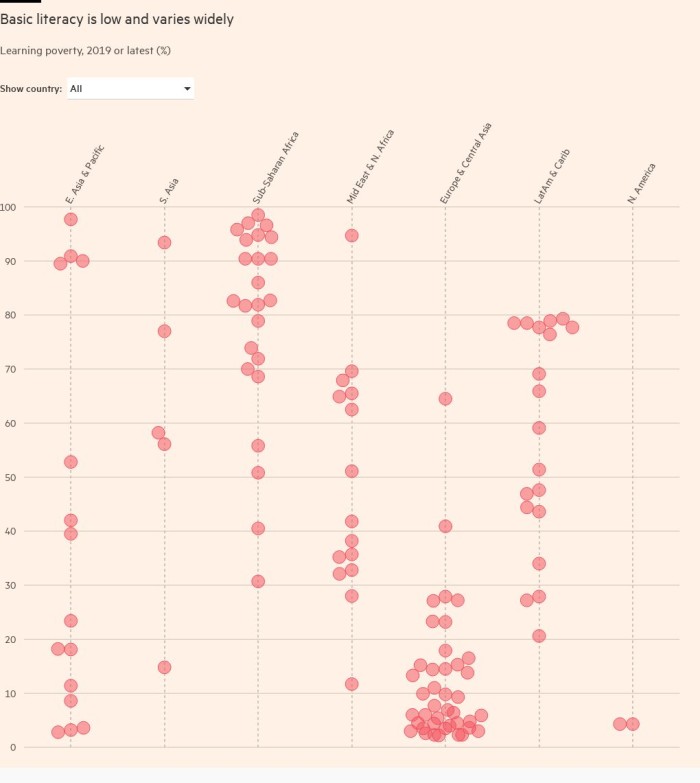Education crisis grips poor countries hit hardest by pandemic
Tamanna Khan has been struggling to catch up with her classes since her school in India reopened this spring, nearly two years after shutting during the coronavirus pandemic.
The 11-year-old’s family was hit hard by the economic fallout from the disease. It wiped out her father’s income as a tailor in Mumbai, and he and his wife were forced to leave their slum dwelling to return to their home village several hours away by car. They left their daughter with her aunt, where she struggled to continue her online studies with only a mobile phone to use.
“Studying online was very difficult and boring, with poor connections. I had a lot of problems learning,” said Khan, who has since returned to school. “It was very hard to be without my parents.”
The pandemic has left millions of children worldwide, who like Khan live in poverty, facing educational setbacks and emotional distress. Now they have been confronted by fresh pressures as rising inflation and food insecurity threaten their families’ livelihoods, funding for their schools and their own future.
Parents, teachers and policymakers are concerned about how to help youngsters facing multiple challenges. These issues will be discussed by governments at the UN’s Transforming Education Summit in New York on Monday, where calls for substantial funding to tackle the crisis are expected.

“There is a huge learning gap because of the pandemic,” said Divya Dhangar, who works on a Teach for India programme in 34 Mumbai schools including Khan’s. “Kids got so used to staying at home, they didn’t see the importance of studying.”
Dhangar estimates a third of her children fell behind normal attainment levels and some have since dropped out of education entirely.
An estimate by the World Bank suggests “learning poverty” — which it defines as children being unable to understand a simple written text by the age of 10 — has increased by a third in low- and middle-income countries since the start of the pandemic. It said 70 per cent of 10-year-olds in those nations were now unable to comprehend simple text compared with 57 per cent in 2019.
Without a restructuring by governments to find fresh and more efficiently targeted funding to tackle the growing inequalities that resulted from Covid-19, it projects the global loss in earnings throughout the lives of children educated during the pandemic would total $21tn.
Stefania Giannini, assistant director-general for education at Unesco, warned of a looming “education crisis” at a preparatory summit meeting in June, adding: “Unless we radically transform our priorities, there will be no way back.”

There is shared concern over the squeeze on government finance for schools in poorer countries, driven by the economic slowdown during the pandemic, rising debt and interest payments and the prospect of continued inflation. A World Bank survey of finance ministries suggests two-fifths of low- and lower-middle-income countries have cut expenditure on education since 2020, by an average 13.5 per cent.
That has placed fresh attention on the need to ensure more effective spending. Alongside support for emotional wellbeing, World Bank, Unesco, Unicef and donors engaged in the summit argue for a greater focus on “foundational learning”, improving student outcomes notably by delivering solid literacy and numeracy skills in primary school as essential building blocks for their subsequent educational progress.
But with scant sign of fresh funding or a consensus on policies, some are sceptical about the UN gathering. “Expectations are low,” wrote the Center for Global Development, a think-tank, in the build-up to the summit. “Nobody’s proposing any kind of binding international agreement on educational standards, and foreign aid donors show little sign of ponying up with big new financial commitments.”

The think-tank argues that the summit’s agenda is too wide-ranging, including factors such as education focused on climate change awareness. Yet its analysts themselves call for greater attention to still more policies, including preventing violence in schools and tackling the continuing dangers of lead poisoning to child development in lower income countries.
Since Russia’s war against Ukraine sparked fresh concerns about food poverty, school feeding programmes have become a particular focus in richer as well as poorer countries. The aim is to tackle hunger at home, incentivise families to keep their children in school and help them develop healthily through improved nutrition.
“School feeding is a good investment. It needs to be universal,” says Wawira Njiru, the head of Food4education, a Kenyan charity running programmes in 77 schools across the country that has seen a surge in demand. “It’s really shocking to see how rising food costs mean parents can’t afford to feed their kids, and how it’s affecting them.”
Laura Savage, head of the International Education Funders Group, an assembly of philanthropists seeking to co-ordinate their support, said Monday’s education summit must go beyond merely highlighting concerns about the global crisis by crystallising practical measures to help the world’s poorest children.
“I remain convinced that progress in education is not about understanding what works, but about how support is provided,” she said.
For all the latest Business News Click Here
For the latest news and updates, follow us on Google News.
